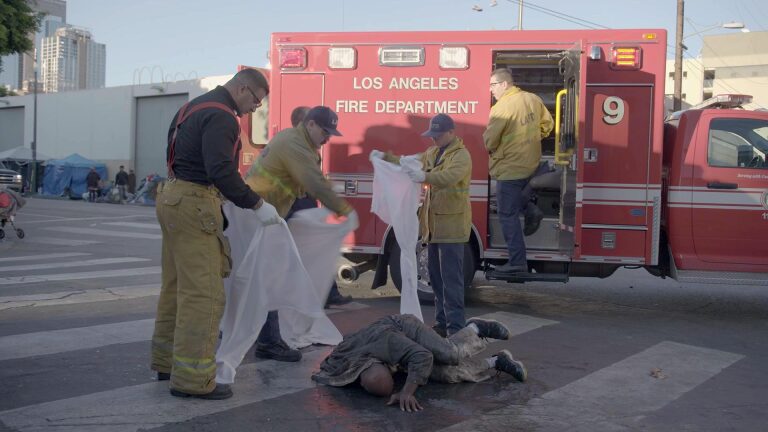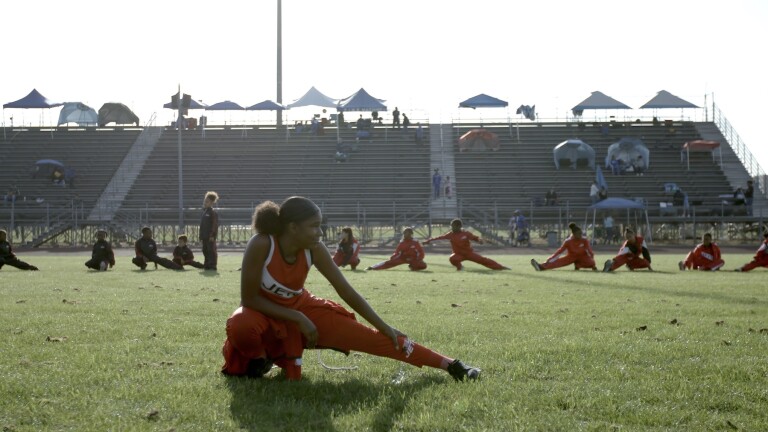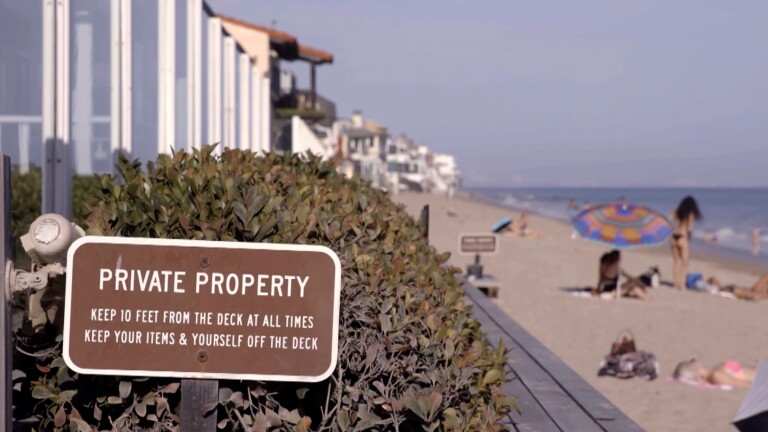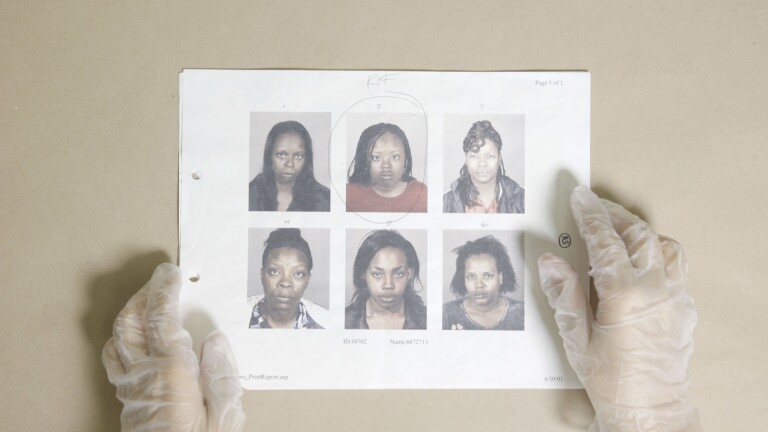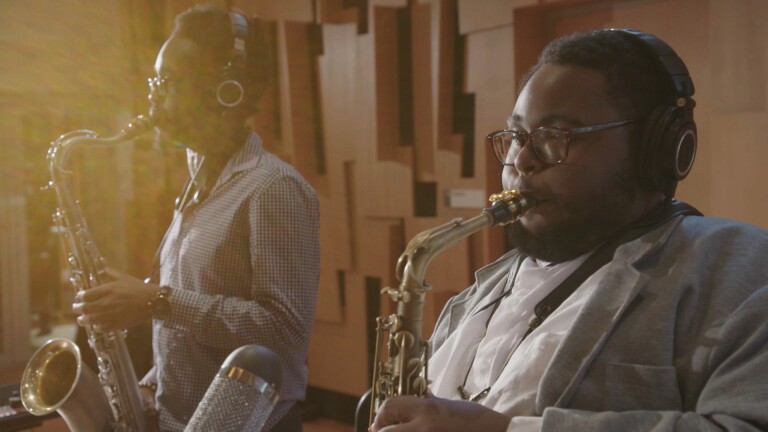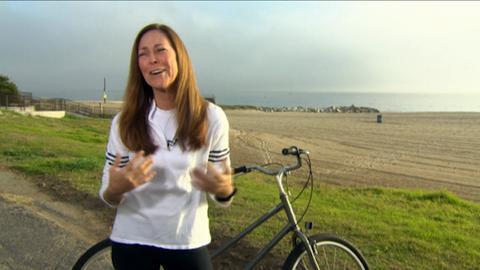
Surviving Caretaking
Many of us think of the elderly as someone else's problem, but, in fact, 75% to 80% of all long-term care for the elderly comes from family members, mostly adult children. In KCET's ongoing project Your Turn to Care, we meet one woman who's doing for her parents what they once did for her.
TRANSCRIPT
Algerine Correia: Being a caregiver for your parents is a lot more difficult than I though it would be.
[Algerine (to father):How'd you sleep last night, Dad?
Father: Yeah.
Algerine: Yeah?]
Algerine: Anita Correia is my mom, and she's 88. And my dad, who's now 92, is from Madeira, Portugal. They've been married for about 67 years. We put their house up for sale, sold their house two-and-a-half years ago and moved them in here. My parents were really resistant, you know, "We want to be in our own house..."
[Algerine (to parents): Let me get the door.]
Algerine: "We don't need to be with you, we're fine here." You know, we really just kept saying, "Yeah but, yeah but, yeah but." And just put our foot down. We tried to make them feel as comfortable as we could here in my house. We brought their bedroom furniture here.
[Algerine to (parents): I'll be back. I'll be in my room.]
Algerine: We brought their lounge chairs for TV, and we took all the pictures off the wall and brought them here.
[McNair Zimbalist: Hi, Anita. How are you? Looking pretty today.]
Algerine: My children get along really well with my parents.
[Algerine : I'm sorry I missed that invitation last night.
Alexis Zimbalist: No, I should have told you sooner. I totally forgot.]
Alexis: I had the room that my grandparents sleep in now.
McNair: And I had their — my bedroom is now their TV room, and, you know, I really don't care. It's like the smallest contribution to the collective effort.
McNair: She's really their kind of guardian angel right now in more ways than one and does it with a smile. It's incredible, and pressure's on us now. We get older you know, it's a tough act to follow.
[McNair (to Anita): See you next time. Bye.
Grandfather (to McNair): Come here. Come here.
McNair: No that's OK.
Grandfather: Let me give you money.
McNair: No, you don't have to give me any money.]
Algerine: They do worry about the money, and that is going to be an issue coming up within the next few months. I have to sit down with my brother and sister and figure out basically what we're gonna do because it's expensive. There're times it gets frustrating. There're times it just gets frustating, and I need my space, and just going in my room isn't enough space. I need the whole outdoors for space.
Algerine: You think about what's the worst thing that can happen because it's going to happen, and that's them dying. And I started thinking, "God, why aren't I nicer to them? Why don't I spend more time? Why don't I talk to them more? Why don't I be a little more lightweight?" You know, you start kind of like picking on yourself, you know, to be better. And I think I'm good. I try my best, and try to take care of myself and my mom and everybody.
[Algerine (to dog): Alright, Tucker, stay to the right.]
Algerine: Looking at your parent life, it makes me think that the next ten or fifteen years of my life are my best years.
[You OK, Dad?]
Algerine: And I don't want them to slip by, so I'm making every effort to do everything I wanna do now. I go to the gym, I'll take a walk, I'll call a girlfriend. I design and market Correia Art Glass, and luckily I can do it out of my home.
[Algerine: OK, this is the show I'm having this weekend. Dad, remember how you put the stamps on the postcards. I'm gonna have you do that again.]
Algerine: And I try spending as much, but I realize that I can't really be here 24/7.
[Algerine (to father): And then Mom will take them and put them here and put them in a box. And then we'll mail them.
Father: No problem]
Algerine: My day person is Lydia, and she's just fabulous.
[Algerine (to Lydia): We'll have to find something else for him to do.]
Algerine: I've had her for probably 30 years, working as my assistant, and now she's worked in to being my caregiver as well.
[Lydia (to parents): I have a chair. It's OK.]
Algerine: The ideal situation for caregiving that I've found for me is to have someone daily from like eight o'clock to four o'clock.
[Caregiver (at door): Hey!]
Algerine: And then have somebody come in from four o'clock until the next morning.
[Algerine (to caregiver): I think my mom and dad are in the TV room.]
[Father (to Algerine): Get a boyfriend. Get one with money.
Algerine: Alright. Bye, Mom. See you later.]
[Algerine: Hi, Val.
Val: How are you?]
Algerine: I have a couple of girlfriends that I meet for dinner once a week. We've been having dinner together for 25 years, so it's a little bit like therapy.
[Val: OK, cheers.]
Algerine: Thank God for girlfriends. They are really lifesavers. After my parents get to bed, I get my computer out and go online for internet dating.
[Algerine: Easy-going man. Loves discovering and experiencing new things.]
Algerine: I definitely think there's room in my life, and I want to make room in my life for a relationship.
[Algerine: 20 years younger? I don't think so.]
Algerine: At a minimum, what I look for now is just keeping them happy, keeping them safe, keeping them healthy as best I can. You start to watch a steady decline, and you can't fix it. You can choose to be happy or choose not to be happy. It just kind of lightens the load that it's not that bad. It's OK. It's what you have to do.

